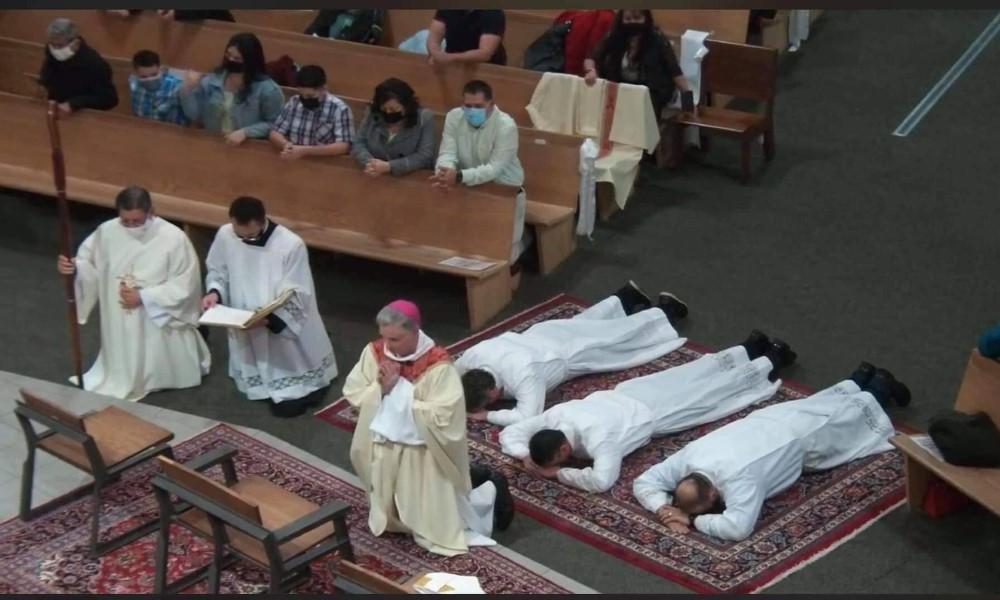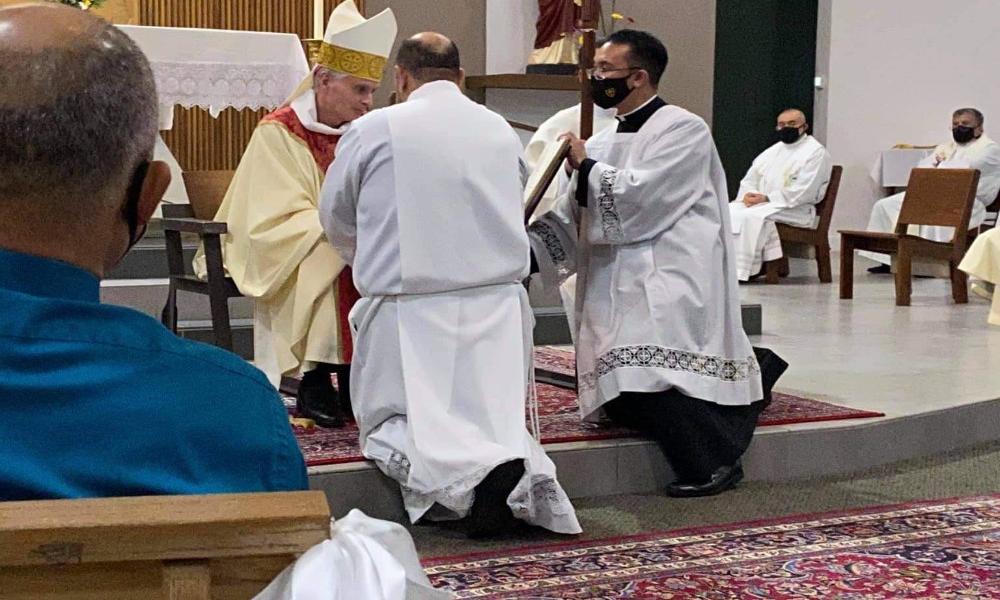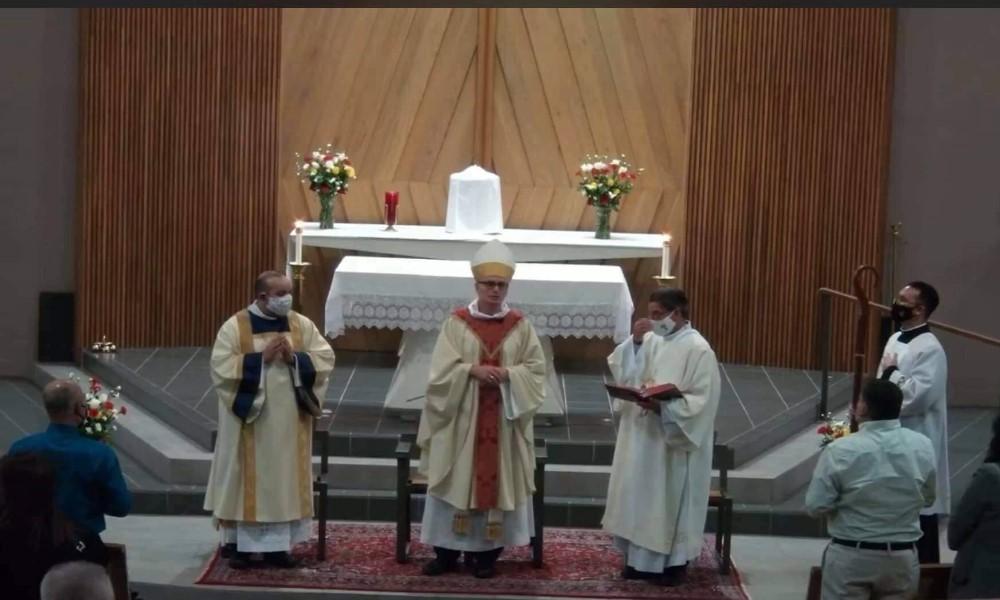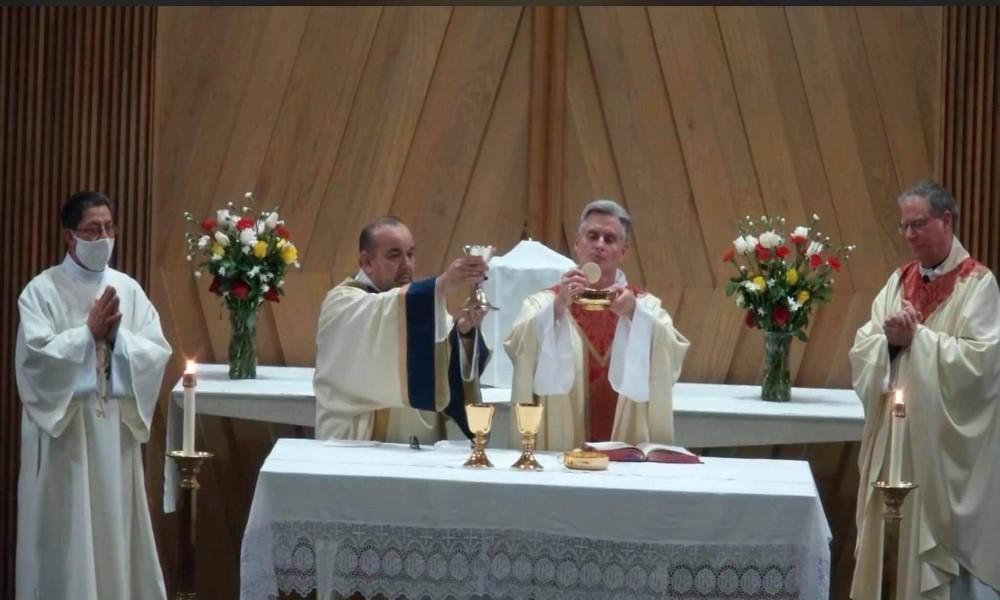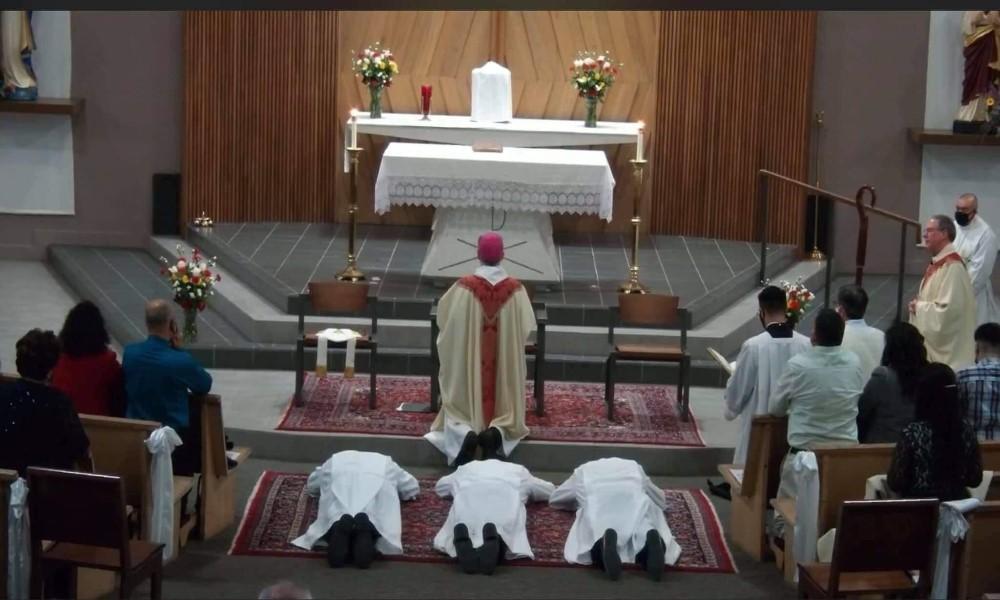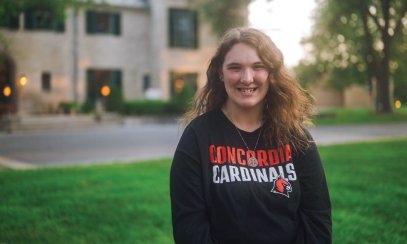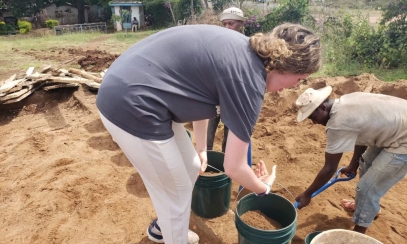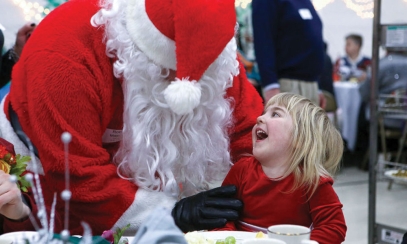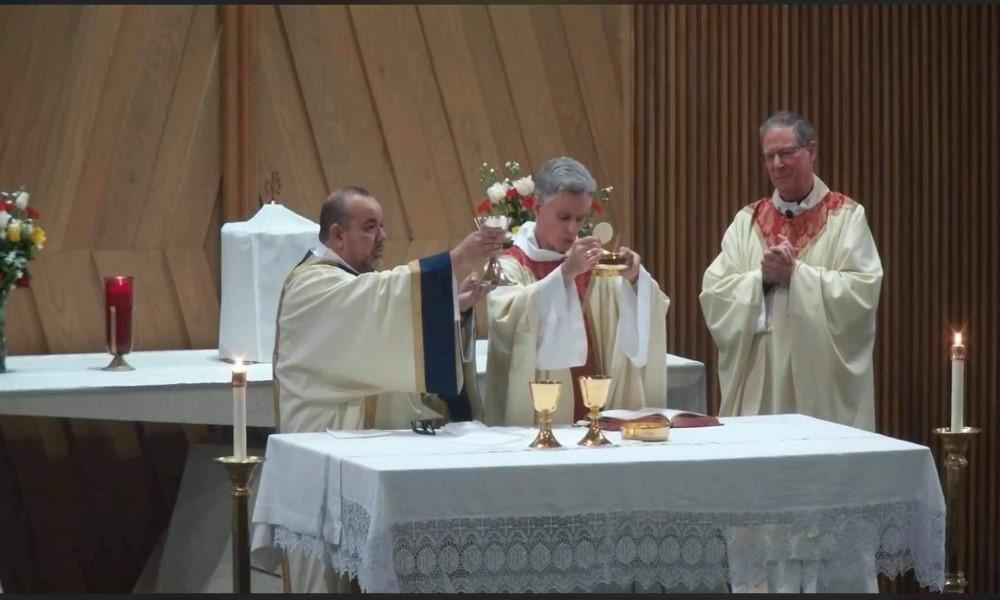
An Unforgettable Experience: Becoming a Permanent Deacon
Editor's Note: Deacon Ulises Aguilera was recently ordained a permanent deacon for the Diocese of Spokane. In recent years several men, with the support of their pastor, approached Bishop Thomas Daly for permission to study for the diaconate through the Diocese of Yakima’s diaconate formation program. These men were ordained deacons in February 2021. One of the deacons, Deacon Ulises Aguilera, shared his personal journey to the diaconate with the Inland Catholic.
My name is Ulises Aguilera. I was born in Michoacán State, Mexico, in 1970. I lived there for 16 years. I came to the United States in 1986. I have been married for 33 years and have three children. I have been attending and serving at St Patrick Catholic Church in Pasco, Washington, since 2008.
I would like to share my experience of being ordained to the permanent diaconate. The Rev. Bishop Thomas Daly came to Pasco and, on Feb. 12, 2021, he ordained me as a permanent deacon. I would like to share with all of you my personal vocation to the diaconate and also discuss what a permanent deacon’s role is in the Catholic Church.
I have been a member of St. Patrick’s Parish in Pasco for the past 13 years. My wife, Raquel, and I, from the beginning, have found St Patrick’s Parish to be a welcoming community where we felt at home. We both became involved in various ministries over the years: I helped as a member of the charismatic prayer group, in the choir, and as a reader at Mass. I helped with Cursillos de Cristiandad. I have also been a member of the RCIA team for more than 10 years and undertook other roles, such as marriage preparation facilitator and jail ministry leader. Raquel, my wife, is currently the director of religious education at St Pat’s. In doing all these ministries, I felt the calling from Jesus to serve as a permanent deacon. I have been privileged to share my faith journey with many people when serving in RCIA, marriage preparation, and jail ministry. As a result, I have made deep and lasting friendships both with members of the team, and with those newly baptized and confirmed adults, many of whom have gone on to offer their service to this community in different ways.
I then realized that my vocation to the permanent diaconate came because of these experiences at my parish community. Also, I realized the importance of the sacrament of marriage and how Raquel and I, like many other families, have had to experience great days and bad days in looking after other members of our family. Raquel is a true example of service and vocation when it comes to showing practical love. That also motivated me to go to study to become a permanent deacon.
When the Diocese of Yakima first asked for candidates for the permanent diaconate in 2015, I was invited to join the program. When Fr. Werner asked me to begin study to become a permanent deacon, it lit a spark in me. Something connected in my heart, but I put it out of my mind and thought “not for me.” Meanwhile, I witnessed other deacons giving services in our parish and in other different churches and I felt drawn to that role. I always remembered, from the Ignatian retreat, the spirit of discerning with the question of what God might have asked me at the end of my life: What did you do with this calling I gave you? I do not want to fail him by not following the call. Therefore, I started my formation journey in 2015 at the Yakima Diocese.
I used the word “formation” because that is really what it has been for me. Like all of us, when we are being trained for a job, I was “formed” to become a permanent deacon. This has been a spiritual formation where I have learned more about my faith not only on an intellectual level, but also on a deeper level, where I have felt challenged and have grown. Many people have helped me during these past six years, the most cherished being Deacon Tony Rodriguez, and many parishioners on the course. Many people in this parish have offered me support and encouragement, including their prayers. I had help from Fr. Gustavo Ruiz, who lent me books and was my mentor and spiritual guide during my formation. Moreover, it has been especially important the support that I got from my pastor, Father Robert Turner, who has given me full support from day one when he became our pastor.
The history of the diaconate goes back to the early Church, with the appointment of the seven deacons in the book of the Acts of the Apostles (6:2). The widows and orphans of the [Hellenist] Greek Jewish community living in Jerusalem appeared to have missed out in the distribution of food and financial support (alms). To resolve this, the Apostles asked the community to elect seven men "of good reputation and filled with the Spirit" (Acts 6:3). This is important, as the assistance of the poorer members of the community was not seen or experienced as separate from the spiritual life of the community. The Apostles themselves had clearly been engaged in serving tables, and it was not seen as beneath them, but theirs was a ministry of preaching, evangelization, and of leading the community in prayer. The aspect of the community electing and sending these men is important to keep in mind. The Apostles laid their hands on these men, which further emphasizes the spiritual dimension of their service (Acts 6:6).
This aspect of service has its roots in the Old Testament and specifically with the role of the men of the tribe of Levi who were appointed by God through Moses to set themselves aside for the special ministry of “serving” the tabernacle (Numbers 1:50-51). The Second Vatican Council highlights this, where it states”…at the lower level of the hierarchy are to be found deacons who receive the imposition of hands not unto the Priesthood but unto the ministry,” (LG, 29). The icon or image of the deacon's spirituality is Jesus the servant, specifically Jesus washing the feet of Peter. The role of the deacon is seen as one of humble service to facilitate, enable, animate, encourage, and empower the service of the whole Church.
In practical terms then, you might ask: what does a permanent deacon do? Permanent deacons have a threefold ministry of liturgy, word and charity. Specifically, a permanent deacon may assist the parish priest by doing baptisms, marrying couples, bringing communion to the sick and dying, and assisting at funerals. A permanent deacon may also give the homily at Mass and is the "ordinary" minister of the Eucharist – meaning that he is the “normal” assistant for distributing communion, both at Mass and when visiting the sick of the parish.
A permanent deacon assists at Mass and other sacraments in specific ways, such as proclaiming the Gospel, assisting with prayers, or serving at the altar. Permanent deacons often specialize in other forms of ministry, for example in this diocese, chaplaincy in prisons, hospitals, residential and nursing homes, or schools. What is important to say is that a permanent deacon does not substitute for a priest. The deacon's ministry is different but complementary to that of the priest and the bishop. The permanent deacon should not and does not detract from the ministry of the laity, where we all share through our baptism the common priesthood of Christ, and in the ministry of service to one another. There is much more to say about the history and role of the deacon, but I can mention that in another article.
I realize that my vocation has its roots in my family. The calling has come from within this parish community, and it is in this parish community that my vocation has grown and has been fostered. In my years of discernment and preparation before I became a permanent deacon, Raquel in the company of other aspirants and their wives stated clearly in her own words, that the calling was being given to the community. Please pray for me as I will be praying for you, as well. I am so humbled to be called to the permanent diaconate ministry in our diocese.

